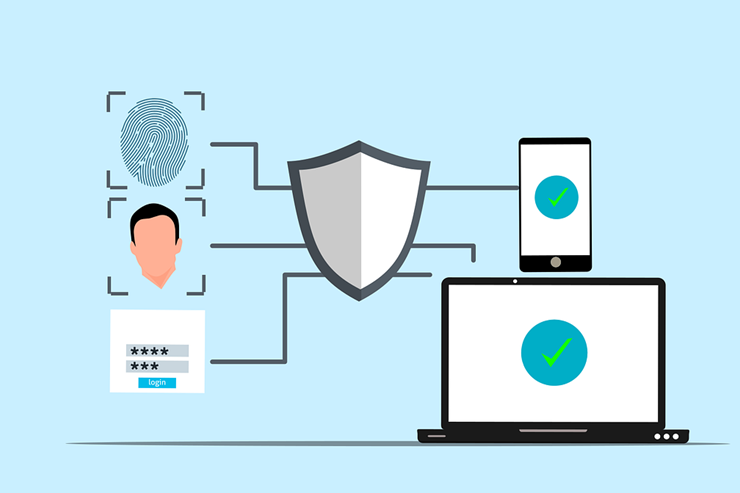Why Should Your Law Firm Hire a Cybersecurity Firm

The Growing Cyber Threat to Law Firms
Because law firms hold valuable information, cybercriminals are increasingly targeting them. Legal data, in contrast to other industries, frequently consists of sensitive personal information, intellectual property, privileged communications, and merger and acquisition information. Hackers find all of these to be very appealing.
More than 29% of law firms reported a data breach or cyberattack in the previous year, per the American Bar Association's 2023 Legal Technology Survey Report. Smaller businesses are not exempt. Actually, because of their outdated security procedures and lack of IT resources, they are frequently viewed as easier targets.
Law firms are vulnerable to the following cyberthreats:
- Phishing attempts that deceive staff members into disclosing login information
- Ransomware that encrypts important data and requests money to unlock it
- Insider threats from irate workers or unintentional data breaches
- Attacks on the supply chain by unreliable third-party vendors
Without adequate safeguards, a single successful breach could lead to legal trouble, fines from the authorities, a decline in client confidence, and irreversible harm to your company's reputation.
Why Law Firms Are Particularly Vulnerable
Many law firms are not as prepared for cybersecurity as they should be, despite their responsibility to enforce the law. This vulnerability is caused by a number of factors.
Heavy Reliance on Sensitive Data
Every day, law firms deal with sensitive data. Clients value this data, but hackers who want to sell or exploit it also value it. Lawsuits and regulatory scrutiny under regulations such as the CCPA or GDPR could result from a single breach that exposes hundreds of clients.
Outdated Technology and Practices
Many businesses continue to use outdated software, unencrypted local servers, or unprotected email platforms. These antiquated tools are more vulnerable to intrusions and are more difficult to update or patch.
Limited In-House IT Expertise
Dedicated IT or cybersecurity personnel are frequently absent from smaller or mid-sized businesses. Without specialists on hand, vulnerabilities are overlooked, and incident responses are either inefficient or take too long.
The Consequences of a Data Breach
A law firm cyberattack is more than just a technical problem. It's a crisis of ethics and business. Think about the possible consequences:
- Loss of client trust: Customers anticipate privacy. That trust can be destroyed by a breach, which can result in lost revenue and harm to one's reputation.
- Legal and regulatory penalties: Depending on the jurisdiction, businesses that violate state privacy laws, GLBA, or HIPAA for healthcare-related cases may be subject to fines.
- Disruption to operations: Ransomware has the ability to completely lock down your system, which stops billable work and delays cases.
- Professional liability: If carelessness in data protection is demonstrated, a data breach may give rise to malpractice claims.
In severe situations, businesses have had to shut down following a significant cyberattack because of the harm to their finances and reputation.
How a Cybersecurity Firm Protects Your Law Practice
One of the best ways to protect your company is to hire a seasoned cybersecurity company. These professionals contribute specific expertise, instruments, and proactive tactics designed for the legal sector.
Risk Assessment and Compliance
A cybersecurity company performs a thorough audit of your current systems, finding weaknesses and guaranteeing adherence to industry and legal norms like state bar requirements and the ABA Model Rules.
Advanced Threat Detection and Prevention
Cybersecurity companies can identify and stop threats before they cause harm by using intrusion detection systems, firewalls, endpoint protection, and round-the-clock monitoring.
Employee Training and Awareness
One of the main reasons for breaches is human error. Cybersecurity companies offer customized training courses to teach your employees how to spot phishing attempts, create strong passwords, and adhere to best practices.
Incident Response Planning
Breach can occur even with robust defenses. In order to minimize damage, act promptly, and fulfill legal reporting requirements, a cybersecurity company assists you in creating and testing an incident response plan.
Secure Data Management
Cybersecurity professionals make sure your data is protected at every step, from cloud security and data backup solutions to encrypted email and secure file-sharing platforms.
New Title
Cybersecurity is about culture, not just technology. You are not merely purchasing a service when your company collaborates with a cybersecurity provider. You are making an investment in mental tranquility. By doing this, you are letting customers, partners, and authorities know that you take data security seriously.
Furthermore, showcasing robust cybersecurity procedures can give you a competitive edge. Before hiring a law firm, clients—particularly corporations and institutions—are increasingly requesting proof of the firm's security posture.
Final Thoughts: Cybersecurity Is a Professional Responsibility
Lawyers now have an obligation to comprehend the risks associated with technology as part of the American Bar Association's Model Rule 1.1 on competence. This indicates that neglecting cybersecurity is not only dangerous. It might be against professional ethics.
Safeguarding digital assets is essential for your legal practice's operations, client relationships, and reputation. Working with a trustworthy cybersecurity company does more than just protect you from attacks. You are fulfilling your obligation to your clients and your line of work.
Act now rather than waiting for a breach. Now is the time to protect your company. Prioritize cybersecurity to safeguard your information, your customers, and your future.










